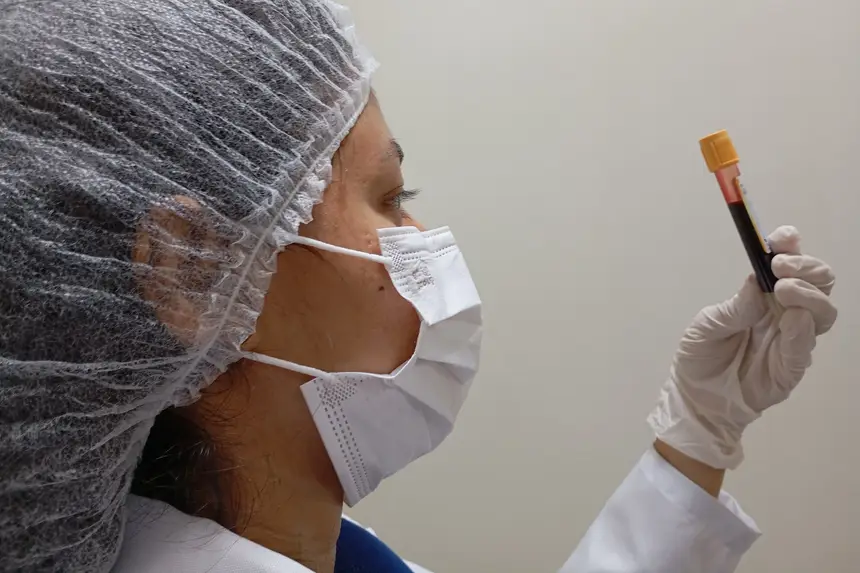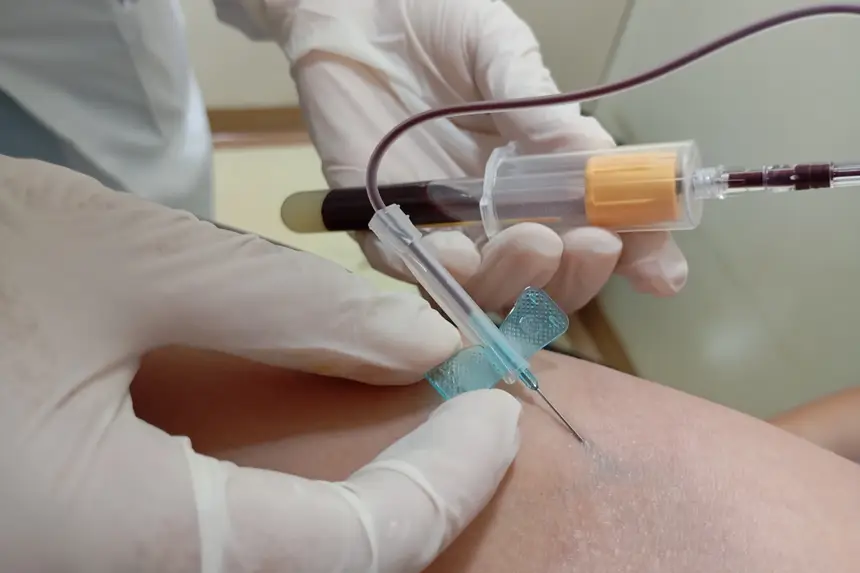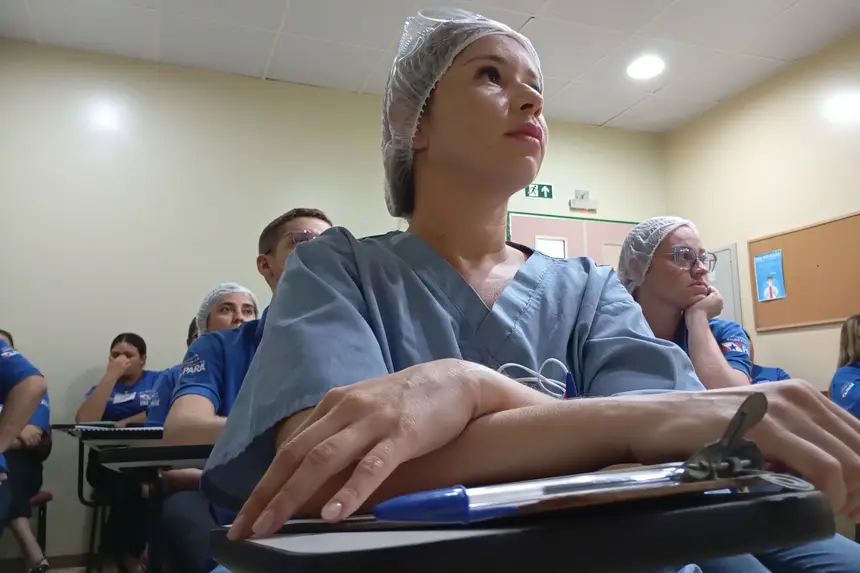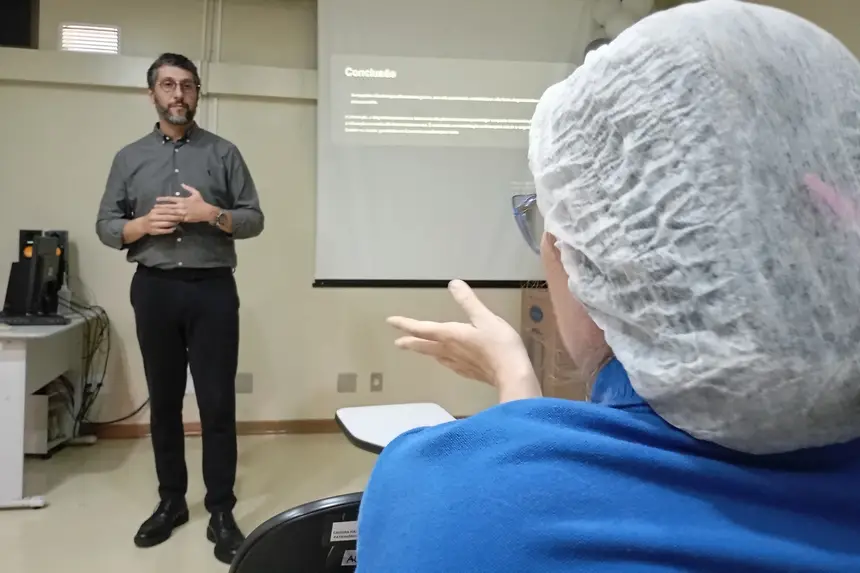Control of Hepatitis: Transamazon Hospital Invests in Prevention
Unit trains employees for patient care and self-care
The Ministry of Health maintains an alert for viral hepatitis in Brazil. They are among the most common infections in the country, and in the last five years, there have been 780 thousand cases throughout Brazilian territory. In "Yellow July", a month dedicated to combating the disease, the Public Regional Hospital of Transamazon (HRPT) reinforces the importance of prevention, diagnosis, and treatment.
During the campaign, guidance on patient care and also employee care is expanded. Everyone, upon admission, undergoes hepatitis and other viral tests. The unit maintains a sentinel, which ensures that employees have updated vaccines and tests, as explained by the Occupational Nursing Technician, Icaro Souza.
"Therefore, it is essential to maintain a protection network during care, which includes vaccination, updates against hepatitis B, the correct use of PPE (personal protective equipment), and periodic exams. We are constantly conducting awareness and health education campaigns in the workplace," details Icaro.
The pharmacist Ísis Fleck dos Santos is one of the employees in constant training. Pregnant for 7 weeks, she knows that now the care is doubled and, during prenatal care, she will undergo some specific procedures, including monitoring of hepatitis. "Being in the health field, being more exposed to infectious diseases, it is essential that there is monitoring, especially during pregnancy, for the protection of both the mother and the baby."
According to the Ministry of Health, the risk of an infected mother transmitting hepatitis B to the child is 50%. This is not the case for Isis, who does not have the disease. But for the future mom, the alert is valid in all situations. "It is not just about monitoring, but preventing with vaccines. When we are pregnant, the baby is totally dependent on us. So, the mother's health reflects on the health of the baby that is still being generated," she warns.
Ana Cristina, a nurse at the Epidemiological Hospital Center, monitors the tests performed at HRPT. The professional emphasizes that "the importance of the tests is to identify in a timely manner and, in case of confirmation, to start treatment." The data from the Transamazon Hospital "is forwarded to the Ministry of Health's laboratory monitoring system that maps the situation and identifies the most vulnerable regions," adds the nurse.
One of the aggravating factors is underreporting, when a person does not undergo tests and, if already infected, ends up spreading the virus to others. The occupational physician, Raphael Jacobs, gave one of the lectures of "Yellow July" to employees of the Transamazon Regional.
He explains that the training of professionals must be continuous, focusing on maintaining an efficient public network. "What is the health system? Prevention. No matter how much we work in a hospital, treating the disease, if we can prevent it, it will reduce the disease, the infection."
Modes of Transmission
The World Health Organization (WHO) estimates that one in every 30 people may be infected with one of the 5 types of hepatitis: A, B, C, D, and E. In Brazil, A, B, and C account for the majority of records.
WHO classifies diseases by modes of transmission. In the case of type A, it usually occurs orally, through the consumption of contaminated water, fruits, vegetables, and other foods. Even though it is considered a mild type, without sequelae, it is important to pay attention during preparation and always wash well what will be served raw.
Hepatitis B is transmitted through contact with bodily fluids, such as blood, secretions during childbirth, or semen, which also places this type B on the list of Sexually Transmitted Infections (STIs). It is the most severe and can lead to chronic stages, requiring continuous treatment.
Hepatitis C can also be transmitted through blood. In most cases, this type has a long duration and can have complications if not treated.
The last two types are the least common in Brazil, but require equal attention, especially type D in the North region. The hepatitis D virus needs to be contracted by the hepatitis B virus to infect the individual. These infections can occur simultaneously or as a superinfection in severe hepatitis B patients.
The doctor, Leonardo Rodrigues, points out that "this co-infection is even more dangerous, as it increases the chance of developing chronic liver failure (cirrhosis) and liver cancer, hepatocellular carcinoma. This is extremely important in our region, as the hepatitis D virus is more prevalent in the North, contributing to over 70% of cases," warns Leonardo, who is also the technical director of the Regional Hospital of Transamazon.
Like type A, hepatitis E is transmitted through contaminated water. Generally, the infected person does not progress to severe cases, and the disease manifests acutely, that is, for a short period.
What to do in case of suspicion
When presenting signs and symptoms, the recommendation is to seek medical help. The test is available through the Unified Health System (SUS), as well as vaccines for types A and B. In case of no treatment, especially for hepatitis B and C, the patient may progress to severe and very severe cases, such as liver cirrhosis and liver cancer.
Text by Rômulo D’Castro















